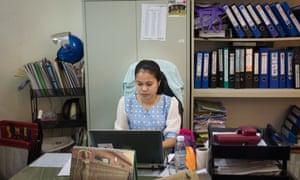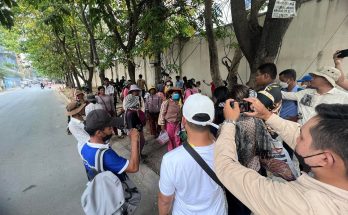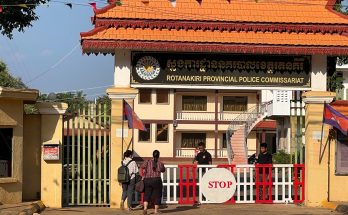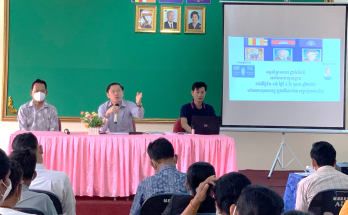When Phany made it back to her home in Cambodia, she thought the worst was over. Like an increasing number of young women lured from garment factories on the promise of better work and brighter horizons in China, she ended up sold to a stranger and trapped in a life of abuse as one of Cambodia’s trafficked brides.
After months of sexual assault and domestic servitude, Phany escaped. What she never expected was that when she returned to Cambodia she would be treated as an outcast, her life still plagued by the horrors she had lived through.
Every year, dozens of Cambodian women are trafficked to China and sold as brides. Although there is no official data available, one Cambodian human rights group, Adhoc, says it received 35 new cases last year. Foreign ministry spokesman Chum Sounry says that in 2015 the Cambodian government facilitated the return of 85 trafficked brides who had managed to reach a Cambodian consulate. Many others who are unaccounted for are thought to be trapped and unable to return home.
“You can be sure that for every woman who escapes her captivity in China and returns to Cambodia, there are dozens more that never make it out,” says Phil Robertson, deputy director of Human Rights Watch’s Asia division.
China’s former one-child policy and the preference for male children created such skewed sex ratios that some families are unable to find local women for their sons to marry. Poor villages in Cambodia have been increasingly seen by traffickers as a source of potential brides.
They offer young women and their families – whose employment options often range little further than working in garment factories – decent work, better pay and more opportunities in China.
Phany, now 29, worked for six months as a poorly paid seamstress in a local factory. She decided to travel to China with her 20-year-old sister after her cousin introduced her to a Chinese couple who said they could offer her more lucrative factory work.
When they arrived in Shanghai they were met by a Cambodian man who said he was arranging work for them. The next day, the sisters were sold to two men who came to buy wives. One of the men paid cash for Phany and took her away, telling her that he was her new husband. They later registered their marriage, though Phany has never seen the documents.
Phany’s life became a cycle of physical, sexual and mental abuse as she carried out chores under the watchful eye of her husband and his mother.
Unable to communicate through speech, her husband would rely on gestures to give orders, often becoming aggressive if they weren’t obeyed.
“Sometimes even if there wasn’t any problem he’d attack me,” she says, as she mimicked her husband pulling at her hair and kicking her. She says she was frequently raped.
In her six months in China, Phany tried to escape three times. The third time her husband caught her, he hit her repeatedly in the stomach before finally letting her go.
Borrowing money from her parents, she returned to Cambodia. “I felt so happy. It was like being born again,” she says.
Yet when she returned to her community, she was treated as an outcast and blamed for the abuse that she’d suffered. “They didn’t want to talk to me any more,” she says, describing how her family had been torn apart by her experience.
Phany eventually left her village and went to work in Phnom Penh, where she says she can live a more anonymous life.
“I used to not want to get to know anybody because I didn’t want to admit what happened to me,” she says. “Whenever I go back to my village I feel so ashamed. If the people around me wouldn’t look down on me I would want to move back home.”
People who have been trafficked are legally entitled to support services but, with the government focusing on the prosecution of traffickers, this rarely materialises.
“It’s a rule for the government to support victims who have returned but actually [there is] no support,” says Chhan Sokunthea, head of the women and children’s division at Adhoc, which last year helped more than a dozen trafficked women to return home.

Nary*, 22, who returned to her home in northern Cambodia in September after four years as a trafficked bride in China, hasn’t spoken to anyone in her community about her marriage.
Unlike Phany, Nary knew she would have to marry to stay in China, but had no idea of the life that awaited her.
“Not only my husband had sex with me but also his father and his relatives. In my first month I was just a housewife but after three months everything changed,” she says. “Everybody came to have sex with me any time they needed to.”
She says that if anyone discovered what happened to her she would be cast out of her community. “If any men know that I was married there, they won’t love me. I try to bury my past because it makes me so angry when I think about it or even when I hear anyone mention China.”
For Phany, pretending that her life in China didn’t exist is the only way she knows to survive. “I think about it but I try not to do that too much. I’m worried that if I do I’ll make myself ill,” she says.
“I have never forgotten what happened there. I still remember even though I want to forget. I try to keep my background to myself so I can change my life, but I don’t know what my future holds yet.”



